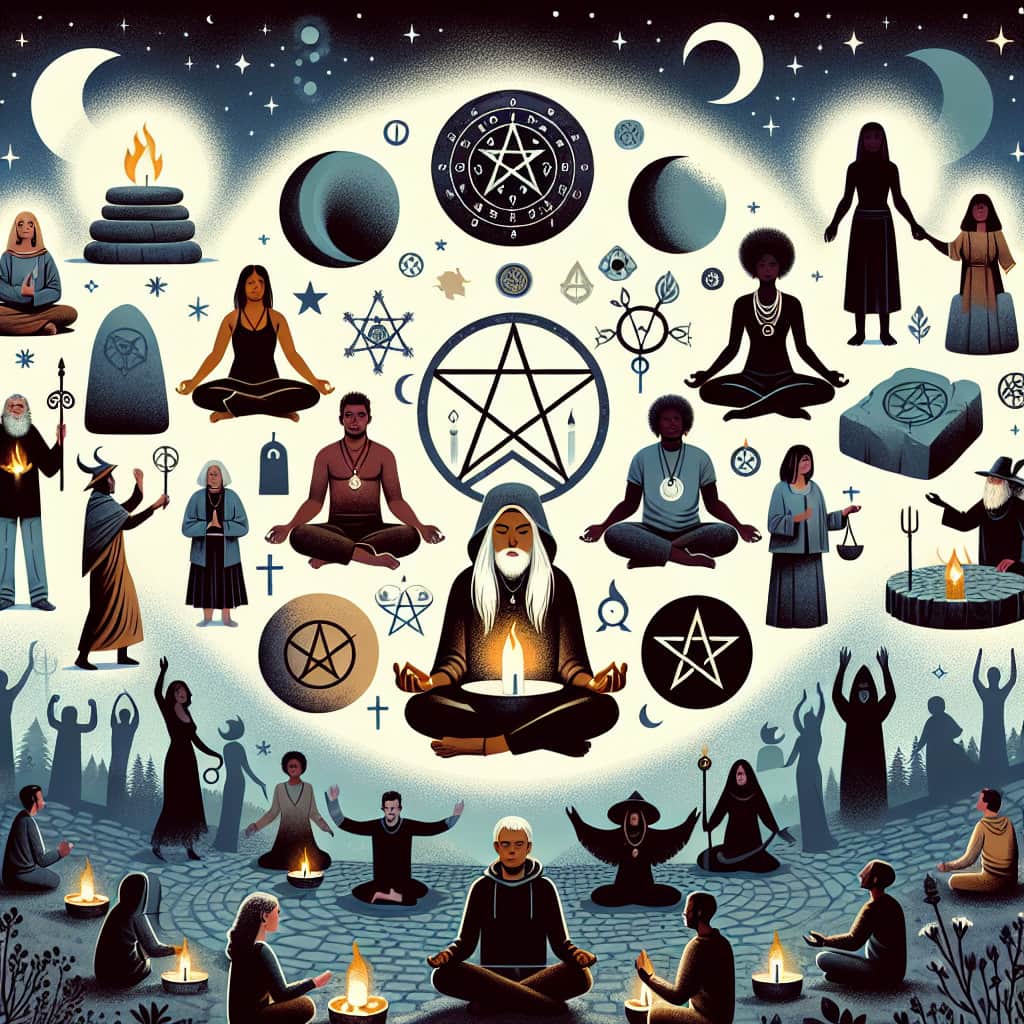The term ‘pagan’ refers to a range of spiritual and religious practices that predate, or are outside of, the main world religions. Pagan practices are often characterized by a reverence of nature, a focus on the divine feminine, and a belief in a pantheon of gods and goddesses. This article will provide an overview of what pagan practices are and how they differ from other spiritual and religious traditions. It will also look at some of the different forms of paganism, from traditional Wicca to more modern forms of practice.
Pagan practices are spiritual beliefs and rituals that predate Christianity and other major world religions. These practices are often associated with nature, and involve the worship of gods and goddesses.
What are the beliefs and practices of paganism?
Paganism is a broad term that encompasses a wide range of beliefs and practices. Pagans generally believe in the power of nature and the interconnectedness of all things. They also believe in the importance of personal spirituality and the interconnectedness of divinity and humanity.
Paganism is based on animism, which is the belief that all things possess a spirit or soul. This includes animals, plants, rocks, and other elements of nature. Pagans also believe in a variety of gods and goddesses, although there is no central authority or set of rules to define which gods and goddesses are worshipped.
Pagan practices involve rituals and ceremonies that honor the gods and goddesses, as well as the natural world. These rituals often involve offerings, such as food, drink, and incense, as well as prayers and meditations. Many pagans also practice divination, a form of foretelling the future by interpreting signs, symbols, and other phenomena.
How are pagan practices different from other religions?
Pagan practices are distinct from other religions in several ways. Most notably, pagans do not have a centralized authority that dictates their beliefs and practices. Instead, each individual is free to practice paganism in whatever way they choose.
Pagans also do not believe in a single all-powerful deity, but instead believe in a variety of gods and goddesses. These gods and goddesses may be associated with different aspects of nature, such as the sun, the moon, or the land.
Finally, paganism is not based on a set of written rules or laws. Pagans are free to interpret their beliefs and practices in whatever way they choose, as long as they do not harm anyone else.
What is the history of paganism?
Paganism is an ancient spiritual practice that predates Christianity and other major world religions. It is thought to have originated in the Middle East, specifically in the region now known as the Fertile Crescent.
Paganism spread throughout Europe and other parts of the world through trade and exploration. Pagan beliefs and practices were eventually supplanted by Christianity and other major world religions in many parts of the world, but they have continued to be practiced in some areas.
What are some examples of pagan practices?
Pagan practices vary widely depending on the individual, but some common examples include the following:
- Worship of gods and goddesses
- Rituals and ceremonies honoring the gods and goddesses
- Offerings, such as food, drink, and incense
- Prayers and meditations
- Divination
- Celebrations of seasonal changes, such as the solstices and equinoxes
What are the benefits of pagan practices?
Pagan practices can provide many benefits, such as a sense of connection to the natural world, greater self-awareness and understanding, and a deeper appreciation for the cycles of life. Practicing paganism can also help people to develop a more spiritual understanding of the world and their place in it.
In addition, pagan practices can help to foster a sense of community and connection among people who share similar beliefs and practices. This can provide a sense of comfort and security, as well as a platform for mutual support and growth.
Finally, paganism can provide a much-needed respite from the hustle and bustle of modern life. It can be a chance to slow down and reconnect with the beauty of the natural world and the spirit of the divine.
Where can I learn more about pagan practices?
There are many resources available for those interested in learning more about pagan practices. Books, podcasts, and online forums are all good places to start.
Additionally, many communities offer classes and workshops on various aspects of paganism, including ritual practices, divination, and other spiritual topics. Attending these events can be a great way to connect with others who share similar beliefs and practices, as well as to learn more about paganism.
In conclusion, Pagan practices are a diverse set of spiritual beliefs that are based on the reverence of nature and the cycles of the seasons. These practices have been around for centuries and have been a source of spiritual guidance and healing for many people. They involve rituals, ceremonies, and symbols that are used to connect to the divine and to honor the earth and its inhabitants. While the exact practices vary from tradition to tradition, they all share a common goal: to connect to the divine and to bring balance and harmony to the world. It is important to remember that Pagan practices are not only about connecting with the divine, but also about honoring the earth and its inhabitants, and living in harmony with the natural cycles of life.





